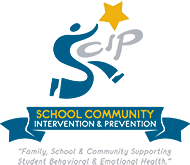Spring Conference - "Building Bridges Over Troubled Waters: Preventing School Violence Through Action, Connection & Hope"
Keynote Speaker: Dr. Scott Poland - "School Safety Best Practices: Lessons Learned From School Shooting Tragedies"
Dr. Scott Poland is a professor at the College of Psychology and is the director of the Suicide and Violence Prevention Office at Nova Southeastern University. Dr. Poland is a licensed psychologist who has been internationally recognized as an expert on youth suicide, school violence, school safety, threat assessment and school crisis. he is a former President of the National Association of School Psychologists and a former Prevention Division Director of the American Association of Suicidology. Dr. Poland has testified about the mental health needs of children before U.S. Congress on four occasions. He is a founding member of the National Emergency Assistance Team and has personally assisted school communities following school shootings, acts of terrorism, natural disaster and suicide clusters.
As a result of this presentation, the participant will:
- Gain knowledge on the importance of addressing student mental health
- Gain knowledge on recognizing signs of serious mental illness and suicidal behavior
- Gain knowledge about conducting crisis drills that practice moving students to safe and protected places
Followed by -- Scott Stemper: "Are Nebraska schools one of the safest places for our children?"
Scott Stemper has spent 40 years collaborating with schools and communities in prevention, preparedness, response and recovery across Nebraska. Scott is a Psychological First Aid for Schools trainer and has provided 285 schools and Educational Service Units (ESUs) the tools to develop their own Emergency Operations Plans throughout Nebraska. Currently, Scott is an Emergency Operations Planning (EOP) Specialist with the Nebraska Department of Education.
As a result of this presentation, participants will:
- Gain knowledge and skills in school safety
- Feel empowered to take action in accordance with their schools and communities
- Be able to persuade potential stakeholders to advocate for prevention strategies in their schools/communities
Followed by -- Liesel Hogan: "Connecting with the Hardest Kids: Lessons Learned From Year 1 as a Threat Team Therapist"
Liesel Hogan (MS, LIMHP) currently serves as the Violence Prevention Psychotherapist on the Lincoln Public Schools Threat Assessment Team. Alongside her therapy dog, Yeti, Liesel provides targeted intervention to high-risk students in an effort to reduce incidents of violence and to promote a more positive school experience to students struggling with emotional dysregulation and school-related grievances. Prior to her position at LPS, Liesel worked for Educational Service Units as an integrated school mental health therapist for rural districts in central and eastern Nebraska providing direct services to students, crisis team support, and mental health related staff training.
As a result of this presentation, participants will:
- Understand Threat Assessment: Gain a clearer understanding of the principles and practices of threat assessment within the K-12 educational context
- Bridge Gaps: Discover effective strategies for building rapport and establishing trust with difficult students, fostering positive relationships between students and teachers
- Consider Rural vs. Urban Environments: Explore how the implementation of threat assessment may vary depending on the unique characteristics of rural and urban school environments
- Prioritize Psychological Safety: Understand the critical importance of creating a psychologically safe environment for both staff and students, fostering a culture of open communication and support
